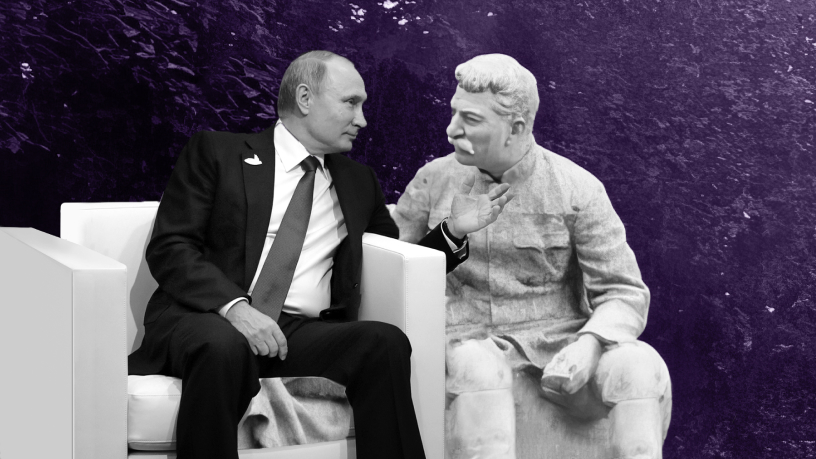
On May 28, at the General Meeting, RAS President Gennady Krasnikov addressed Vladimir Putin with a request to head the Academy’s Board of Trustees. Such a body at the Academy of Sciences did not exist before. And state leaders previously did not have any positions in the Academy of Sciences. With the exception of one – Joseph Stalin, who received the title of honorary member of the USSR Academy of Sciences in 1939. Whether Putin agrees to head the board of trustees or not, the very fact that such a request was made to him suggests that academicians have finally lost confidence in their own safety. An appeal to the first person is an extreme measure, evidence that all other methods of interaction with the authorities have been exhausted. They have been exhausted to such an extent that the FSO decided not to allow some academicians to attend their own meeting.
The very idea of a board of trustees has been discussed at the RAS since 2007. And this was due to the most prosaic reasons. The Academy, like any other government organization with severe bureaucratic restrictions, experienced difficulties accepting extrabudgetary money. One of the forms of their legal use is the creation of trustee institutions. However, for various reasons, this issue was never resolved. And now the project of the Board of Trustees has again appeared on the agenda of the General Meeting of the Russian Academy of Sciences. Academicians voted to appeal to the government with a request to amend the charter to create a board of trustees.
— There was no substantive discussion. I’ll tell you straight: the functions of the council are not clear to me– Commented on this item on the meeting agenda one of the academicians.
The main news about the life of scientists during the war, videos and infographics are in T-invariant telegram channel. Subscribe so you don’t miss out.
Voting on the creation of a board of trustees was carried out in an open manner, so that the voice of each person who disagreed or abstained was visible to the rest of the RAS members. Therefore, those who decided to openly communicate their position, perpendicular to the majority, were few. One is against it. About a dozen abstained. However, there were several dozen people who left the hall demonstratively so as not to vote. All this happened in the presence of Dmitry Medvedev, Valery Falkov and other high-ranking officials.
In total, 1231 members of the RAS took part in the voting out of a total of 1896. But there was also a list of about 25 members of the RAS who were unable to express their attitude to what was happening at all are those who were ordered not to be allowed into the Academy building. In particular, Corresponding Member of the Russian Academy of Sciences, linguist Anna Pichkhadze could not attend the General Meeting. “The FSO officer said that I was blacklisted,” she told T-invariant. “I stood there for five minutes and left.”

Anna Pichkhadze. Photo: RASwebsite
Another corresponding member of the RAS was able to consider that Anna Pichkhadze was number 7 on the list, and number 1 was Corresponding Member of the Russian Academy of Sciences, economist Vladimir Avtonomov. Interestingly, neither Pichkhadze nor Avtonomov had ever been seen to behave violently at a General Meeting, and were not among the vocal academics like Robert Nigmatullin or the late Vladimir Zakharov, who in previous years could break through to the microphone and influence the course of discussion or the agenda meetings.

Vladimir Avtonomov. Photo: HSEwebsite
No one among the RAS members surveyed by T-invariant could remember whether a similar event had happened before in the history of the Russian Academy of Sciences. Now members of the Presidium of the Russian Academy of Sciences are looking into how this list came about and what its full composition is.
Why did the Academy need Putin at the head of the board of trustees?advice? There are different opinions on this matter.
— There is a point of view that this is the conclusion of a truce with the authorities. Previously it was believed that they wanted to destroy or disband the RAS, but now, apparently, the mood has changed and Krasnikov wants to get full access to Putin, – suggests one of the academicians.
— I think the calculation is for a more expeditious solution to the academy’s issues. In exchange for submission. And the board of trustees, in addition to assistance, has the power to block decisions, on personnel policy, etc. – says another member of the RAS.
Thus, in a situation where several members of the RAS are charged with or high treason and the number of scientists against whom criminal cases are being initiated , only is growing, direct access to the head of state in exchange for loyalty is one of the surest ways, if not to protect your colleagues, then at least to ensure that all academics are allowed to attend their own meetings .
Text: Edited by T-invariant